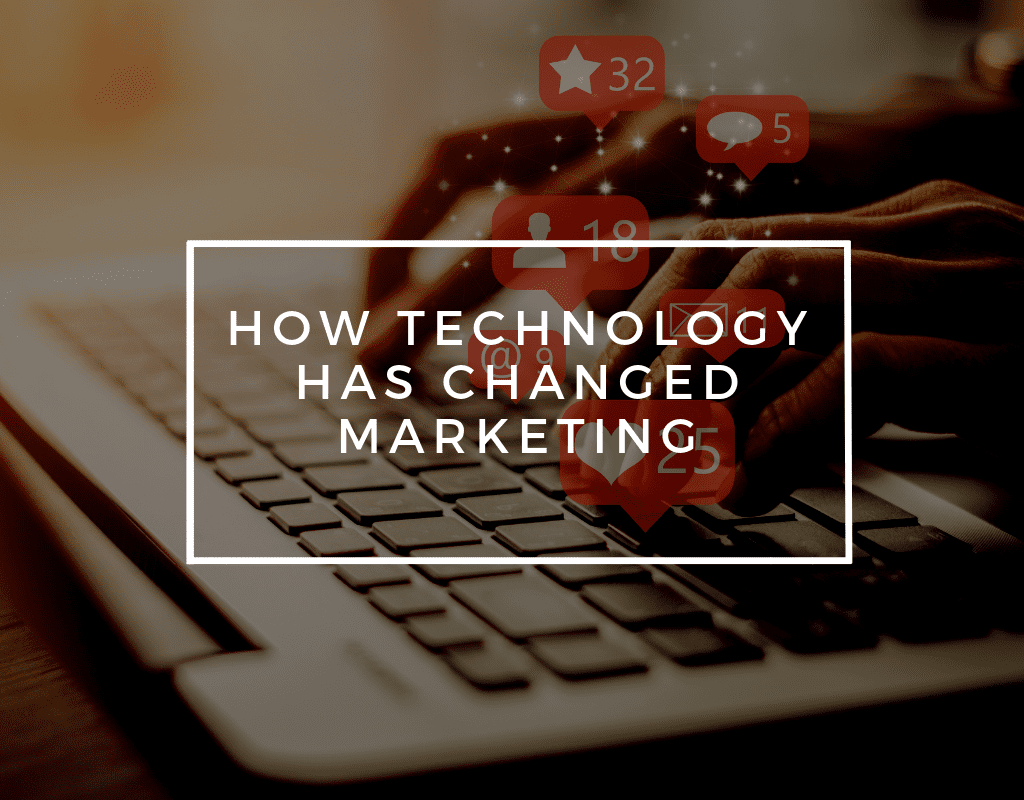
Keywords are the driving force behind effective SEO. In order to increase your rankings online — and in turn increase your business’s success — you must first select relevant keywords. These keywords, when properly selected, have the potential to propel the rest of your SEO strategy to the top.
With the help of a widely experienced professional SEO firm and time spent performing extensive research, your company has the potential to take its SEO strategy to the next level.
Start With What You Know
When you begin the process of selecting keywords, it is important to gather a team and start brainstorming. Scooby Doo and Shaggy didn’t solve a single mystery without the rest of their team — and neither will you.
By allowing members from multiple facets of your company to join in on your SEO brainstorming session, you set your company up for success. The first part of brainstorming requires you to start where you are and with what you know. Make a list of words that are relevantly associated with your company. If you sell shoes in Utah, maybe the keywords “shoes” and “Utah” will show up on your initial list.
From your initial list, fine-tune the possible keyword options. Once you and your team have assembled a list of relevant topics and possible keywords, the true research begins.
Research Brings the Best Results
The easiest way to start your research process is to head to Google. Google some of your possible topics and see what comes up. If you Google the phrase “Utah Shoes” and companies with a vastly different image than your own appear, consider tweaking your keywords.
Perhaps through your research you discover that the phrase “Utah Sandals” pulls up sites similar to your own. Through trial and error, you have discovered a possible keyword.
Your research continues as you experiment with variations on possible keywords. As part of research, select a few competitors and study the keywords used by those companies. This exercise will give you a good idea of what works for keywords and what does not.
Though this phase can be long and difficult, the research pays off when you select keywords that greatly increase SEO — and ipso facto, business.
Polish Up
After you finish research, whittle down your potential keyword list. It is important that you focus on increasing SEO through only a few keywords. Focusing on too many keywords at once decreases the quality and the effectiveness of your SEO strategy.
Consult a SEO firm for a little extra help in selecting the final keywords. Once the keywords have been selected, get to work on creating great content.

In an effort to increase SEO, companies often make simple link spam mistakes. Link spam consists of links setup between specific pages that are put in place to capitalize on Googles link-centric algorithms. Though several types of link spam are helpful for SEO, there are just as many types that can hurt.
Knowing the difference between helpful and harmful link spam can save a company’s SEO. Though it can be difficult to discern, professional SEO agencies have the expertise required to help a company get the most out of their link spam.
Blogging Blunders
There several benefits offered by the blogging world, and though SEO specialist often explore the boundaries, individuals must exercise caution. Google has a low tolerance for fake blogs on which anyone can pay for a spot. These guest posts are often low quality and are generally flagged by Google.
If you are featured on one of these sites, make sure your posts are high quality and that you do not over-link. When considering where to place your articles, search out several options. Sites with a low reputation have the potential to damage your SEO.
The Directory Downfall
Google is fairly vocal about how low it ranks links from online directories. Since Google controls your rankings, it is smart to avoid the low-quality directories it so ardently warns against.
Link spam is often placed in directories — and while some of these directories are helpful, others can be detrimental. Make sure your company takes the time to evaluate each directory its links are listed in. This tactic will improve positive SEO and help individuals avoid negative repercussions of poorly placed link spam.
Keyword Catastrophe
Keywords are great way to increase SEO — but when used wrong, keywords can be harmful.
Using unrelated keywords to draw readers in is a dangerous trap, even though it may be tempting to try and increase your readership. If you run a small Utah coffee shop, use “Utah” or “coffee” as a keyword – not smoothies or Washington. Using “Utah” keeps your keywords relevant and your readers happy. Similarly, do not use the keyword “Utah” a million times throughout your article. Keyword stuffing is bad for SEO and incredibly annoying.
Google’s algorithms look for keyword discrepancies — and if you improperly use keywords, your SEO will greatly suffer.

There’s a problem with the way many companies are approaching SEO. We’re not talking about a problem at a few agencies in Utah. We’re talking about an industry-wide issue, and the issue is this: In an industry where SEO rules supreme, professionals are starting to treat SEO as war for keywords — when in reality SEO is a war for the consumer. You win that war through UX.
What Is UX?
UX is the standard abbreviation for “user experience.” Let’s be frank — it doesn’t matter how many customers end up on your website if they don’t stay. You could effectively use keywords all day long and have the worst UX on the World Wide Web — if your UX stinks, say goodbye to your customers.
How Does UX Work With SEO?
UX and SEO may seem like awkward stepsiblings at first, each on one end of the spectrum professionals have created in their minds of what makes up a successful Web approach. That’s simply not true. UX and SEO actually together work in beautiful harmony.
Think about it. The whole point of SEO is to get visitors onto your website and turn them into customers. In order to do that, you need to create an experience that attracts people, grabs hold of their interest and helps them accomplish what they came to do. It doesn’t matter if they came to book a trip to Moab, Utah or to buy a new DVD player as long as your website helps them do that in the easiest way possible.
Is UX Really That Important?
Don’t sacrifice UX to try and satisfy a Google algorithm. Amazing UX will naturally create an increase as happy customers share and distribute information about their experiences. Sally in Utah will be more than happy to tell her friend Peggy a thousand miles away about the awesome website she just found. She’ll probably tell all her blog followers too.
Keywords will always be important, but they’re a baseline that Google assumes you are already doing. UX is the new frontier of SEO, and as Google’s algorithms become more sophisticated, you can bet that UX will have a dramatic impact on rankings.

If not for Google, we wouldn’t be writing this and you wouldn’t be reading it. Thanks to Google, the increased need for digital content gave rise to a whole new workforce from Utah to the East Coast — and it all started as part of the genesis of online search.
Early in the internet days, search engines like Google made it possible to find information more easily online. To be found in a search, websites had to be relevant, which in the earlier days of the internet (just as now) meant your site had to be associated with certain keywords. This gave rise to what we now call search engine optimization, or SEO.
Initially, some companies would try to game the search algorithms and increase relevance by stuffing their pages full of keywords just to appear more relevant than they actually were. Meanwhile, more forward-thinking SEO firms in Utah were already focused on content and the user experience.
Luckily, Google had higher standards for what a website should be, and a cluttered mess of poorly placed keywords didn’t cut it. To respond to low-quality sites, Google continued to update its algorithms to reward sites that produce content relevant to their markets and keywords, while punishing those with poor content and shady SEO strategies.
This need for relevant — and most importantly — high-quality content changed the way companies approach marketing, and thus gave birth to what we know as content marketing today. Consumers in Utah and elsewhere suddenly had all the information they needed at their fingertips, so it was up to brands to be a part of the conversation by publishing their own content. If brands weren’t providing potential customers information they needed, customers could easily find it somewhere else.
Content became king because it allowed brands to improve SEO in Utah and nationwide, but more importantly, it started connecting consumers with brands they can trust.
This need for content caused a massive shift in how businesses approach marketing. Suddenly videographers, writers and designers were more in demand than ever. Digital marketing agencies popped up to provide these services, and artists of all media types had the opportunity to make an impact in the business world by developing content for brands in need. We thank Google for having the foresight to promote high quality content and give so many people the opportunity to enter the workforce doing what they love.

Coming up with new content ideas is the bane of any digital marketer’s existence. Let’s get real. How many articles about SEO can you really write before it all begins to sound the same? Simply republishing articles doesn’t work. Google can sniff out that ploy in seconds, and it will hurt your SEO more than help. So, what can you do to make your life easier and still improve your SEO? Repurpose content.
Repurposing is different from republishing. Republishing is simply copy and pasting, while repurposing is a recycling and refurbishing of old ideas. This can be done in several ways. We’ll share a few of our favorites.
Video
Video is a great way to repurpose content. Say you’ve written a blog post on the history of Utah. You can take this same idea, even the same information, and present it in a new way through video. Your new video on the history of Utah can be shared in ways that the blog post could not. It will also reach audiences that prefer video to the written word.
Infographics
If you’re looking to go viral, an infographic is the way to go. People love sharing infographics because they are a visually appealing way to share data quickly. That blog post on the history of Utah could easily be made into a graphic timeline — and Pinterest, here you come.
Presentations
Some pieces of content may lend themselves to a presentation like Keynote or PowerPoint. Think how useful a presentation on the history of Utah would be to a history teacher, and how quickly that teacher would share it with friends. Using document-sharing sites like Slideshare allows you to share the information while continually boosting SEO.
Podcasts
Could you expand an old blog post into a podcast? Podcasts can reach a more captive audience, like people working out at the gym or driving home from work. You can also invite experts to participate and expand on your chosen topic.
You don’t have to reinvent the wheel. Just paint it a few different colors and offer a variety of sizes.

Those of us who live in the world of SEO know we bow to the SEO gods — otherwise known as Google. Google dictates what we say, how we say it and whether or not we ever say it again. Most of the time, we’re pretty cool with it. If you’re the owner of a small business, or even a marketing company in Utah with small business clients, the SEO gods are smiling upon your future.
When you examine current trends and speculate on Google’s reasoning in the next several years, it’s easy to see why small businesses will be favored.
Social Media Results
Google is looking towards incorporating social media-based results onto the search engine results pages. More and more social media users are relying on their favorite platform for online content. It wouldn’t be surprising to see content on search engine pages based on the interests of the consumer’s social media contacts. Small businesses benefit here because they can create closer relationships with local groups and consumers than national brands.
Long-Tail Keywords
Voice-to-text technologies create more conversational searches. People speak in long-tail keywords, not broad generalizations. More users are searching for a larger group of specialized phrases. Instead of searching “Utah lawyer,” consumers are searching, “Where can I find a dog bite lawyer near Farmington, Utah?”
Long-tail keywords give small businesses a chance to optimize SEO and gain better search visibility, versus before when larger companies used big SEO budgets to bury smaller competitors.
Searching Local
Google has been perfecting the local search algorithm for quite some time. It’s just going to get better over time, and consumers love it. What tourist in St. George, Utah hasn’t searched, “Best hamburger near me?” Most local businesses are small businesses, so local searches should inevitably boost responses for these groups.
Personalization
Personalization is the new frontier. The more personalized the user experience, the happier consumers seem to be. Digital assistants like Siri and Cortana are gaining popularity because they can gather large amounts of personal behavior information and create the ultimate personalized experience. An easy way to personalize is to use location and purchase history. Both of these elements favor businesses that are small and local.
SEO Is Easier
The more advanced search engines like Google become, the easier it is to enter the game. It sounds counterintuitive, but overall SEO is becoming less scary. Keywords are easier to use. This means instead of spending all your time trying to decipher the complexities of SEO, small businesses can spend more time building relationships with consumers.

Public relations is an integral part of any full service advertising campaign. A public relations campaign improves the company’s relationship with the local community. These campaigns can work in a way that not only improves your relationship with the community, but also increases your SEO.
SEO often has its own strategy — and by manipulating your public relations (PR) strategy to fall in line with SEO, businesses can achieve maximum reach. Professional SEO specialists can help companies develop a clear vision of how PR and SEO can work together.
What Does Public Relations Entail?
Many people believe that PR is as simple as image management and restoration; while this is certainly one function of PR, there are many others as well. These facets may be known as something other than PR, but with such a wide variety of avenues it is likely that your company is participating in some form of public relations — whether you know it or not.
Social media marketing for example is certainly a form of PR. Presenting your company to the public on Facebook and Twitter and interacting with customers and the general public is not only a good PR strategy, but it works great for SEO as well.
Understanding the multiple facets of PR helps companies identify new avenues in which to implement their SEO campaigns.
Now Add the SEO
Making your keywords match your philanthropic ideals is one key way to align your public relations campaign with your SEO strategy. This general tactic can be implemented everywhere from blog posts to Facebook.
Say your company wants to gain public favor with local Utah residents. As part of this outreach effort your company decides to help raise awareness of endangered Utah wildlife. By involving other Utah businesses and developing a cohesive PR strategy, your business can help Utah wildlife and your company reputation at the same time.
Through the use of relevant keywords in your blog and social media posts about your wildlife outreach efforts and by adding links to these articles, you can increase brand recognition and Web page traffic.
Making room for SEO in your content calendar helps companies to expand their reach. As PR broadens a company’s digital horizons, SEO helps target those horizons and send a company in the right direction.

If you’ve conducted a Google search lately, you’ve probably noticed things have changed. Google has done away with side-rail advertisements and increased the number of advertisements that appear at the top of the search results page.
The changes hope to better match the vertical layout of smartphones, but they also mean subsequent changes in the way companies approach SEO. Ranking in about the top five search results used to be enough to get you on the first Google search page. With the new ad changes, as many as seven ads could appear on page one of search results, which means as few as two organic search results could make an appearance on the same page.
So, what does all this mean for you? Well, it could mean that if you are the third-ranked steakhouse in Utah, customers looking for dinner choices may never even know you exist.
How can you combat these ad changes and make sure your services are seen?
Hire an Awesome SEO Manager
Unfortunately, there is no magic solution. Better SEO is always the answer. If you want a guaranteed spot on the first page of search results, you need to be the best-ranked search result. Investing in an awesome SEO manager can make all the difference.
Use Informational Search Terms
Google’s new ad system places more advertisements on “highly commercial queries.” Getting fewer ads to appear when users search for your product or service, say your Utah-based steakhouse, could be accomplished in part by changing the keywords you use. Work with your SEO manager to identify search terms that are important to your business but also won’t set off a large number of ads. Lean more toward informational content than commercial.
Buy Ads
If SEO and informational search terms aren’t getting the job done, you can always buy ads. Ideally, this would be your last resort; however, a well-placed product listing ad (PLA) could put your Utah-area steakhouse at the very top of page one. With the new Google layout, it might be worth the investment.

SEO is essential for survival in a digital world. It brings a new spin to the old question about the tree falling in a forest: If your company doesn’t appear on the first page of search results, does it really exist? A first-rate SEO manager is the key to success, but it seems like every person in Utah and beyond is calling themselves SEO experts these days. How do you sift through the novices to find a SEO manager who can truly make a difference for your company?
Look for Someone Who Lives for SEO
An effective SEO manager will live and breathe search engine optimization. You can be confident that a person who is passionate about SEO will stay current on trends and want to produce visible results.
When looking into possible candidates, see if they practice what they preach. Did they attend the latest digital marketing conference in Utah? Do they post about industry trends on their social media accounts? Ask if they have a personal website or blog you can visit; see what they write about and how they write about it. Someone who lives for SEO will spread energy and passion to the rest of your team.
Look for Someone Who Learned From Experience
The best SEO managers will come from diverse backgrounds. They’ll be knowledgeable about all areas of digital marketing and understand how the different elements work together to produce optimal results. You can tell which candidates are experienced SEO managers by asking what their approach would be for two different clients, maybe for a small business in Utah or a large corporation on the East Coast. Experienced managers will be able to present a specialized approach for each client instead of a one-size-fits-all approach to every topic.
Look for Someone Who Can Communicate
The ability to communicate well with individuals at all levels of the company is crucial for a SEO manager. He or she will be coordinating with and teaching everyone from the CEO to the entry-level interns. If a SEO manager can communicate ideas clearly, effectively and with a good attitude, overall efforts to enhance search engine optimization will just keep getting better.




